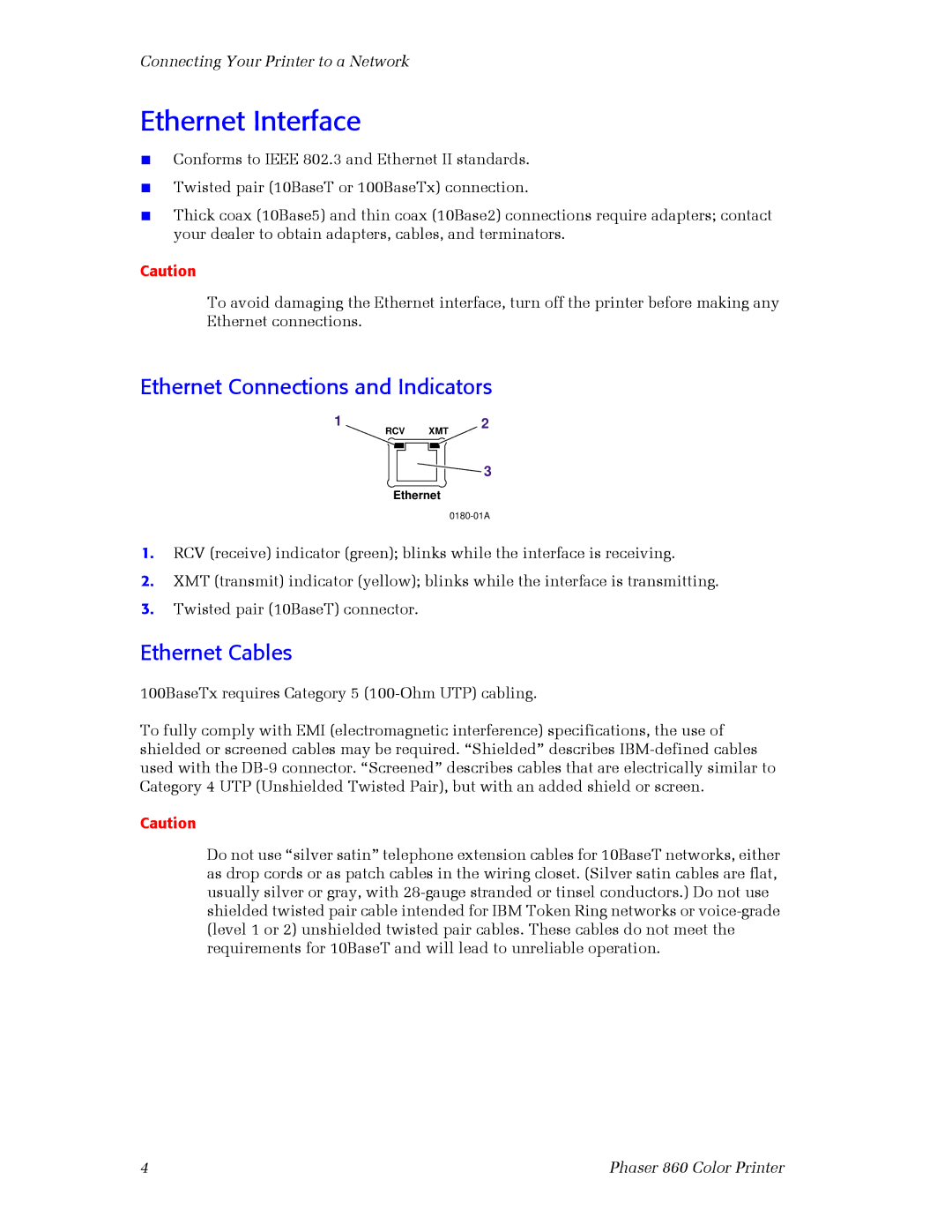
Connecting Your Printer to a Network
Ethernet Interface
■Conforms to IEEE 802.3 and Ethernet II standards.
■Twisted pair (10BaseT or 100BaseTx) connection.
■Thick coax (10Base5) and thin coax (10Base2) connections require adapters; contact your dealer to obtain adapters, cables, and terminators.
Caution
To avoid damaging the Ethernet interface, turn off the printer before making any Ethernet connections.
Ethernet Connections and Indicators
1 |
|
| 2 | |
RCV | XMT | |||
|
|
|
|
|
|
|
|
|
|
3
Ethernet
1.RCV (receive) indicator (green); blinks while the interface is receiving.
2.XMT (transmit) indicator (yellow); blinks while the interface is transmitting.
3.Twisted pair (10BaseT) connector.
Ethernet Cables
100BaseTx requires Category 5
To fully comply with EMI (electromagnetic interference) specifications, the use of shielded or screened cables may be required. “Shielded” describes
Caution
Do not use “silver satin” telephone extension cables for 10BaseT networks, either as drop cords or as patch cables in the wiring closet. (Silver satin cables are flat, usually silver or gray, with
4 | Phaser 860 Color Printer |
